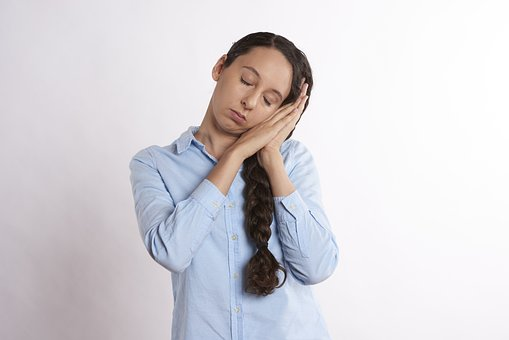Humans might not be hibernating animals but waking up early in winter is not something we can do easily either. As the days get shorter and nights longer, our sleep patterns also show some changes. Scientists have recorded them and found that the sleep duration of people increases during winter.
Theoretically, we are aware that exposure to light and day length can affect our sleeping cycle but we do not know the mechanisms behind it. People who usually have difficulty getting good sleep have also been shown to have longer REM sleep in winter.
Image Credit- Pixabay
What is REM Sleep?
REM is short for rapid eye movement. This is the phase of our sleep in which most of our dreams occur. While sleeping, our brain actively processes things, which affects the quality of our sleep. Humans are known to go through four to five cycles throughout their sleeping hours, each lasting up to 90 minutes. This period includes REM sleep and non-REM sleep. REM sleep plays an essential role in learning, memorising and healthy brain development.
In a study conducted by researchers of Charite Medical University of Berlin, 292 patients with sleep-related problems underwent an experiment where they were asked to sleep naturally and not use any alarms.
People living in urban areas having low exposure to natural light and high exposure to light pollution showed major changes in sleeping habits with changing seasons. There was an increase of 30 minutes in REM sleep, which is known to be linked to the circadian clock which is directly influenced by changing light. Scientists are assuming that there will be a much higher increase in REM sleep in a healthier population with no sleeping difficulties.
Common Factors Affecting Sleeping Schedule
Humans have shaped themselves according to the busy lifestyle and getting uninterrupted sleep is a luxury not many of us can afford. From a young school-going child to office-going adults, our sleeping hours are regulated by the time left after attending our workplace and doing daily chores and in the morning our alarm clocks start the day.
People need to look after their sleeping patterns as they can help us understand the stress and fatigue our body is going through. An irregular sleeping schedule can affect your quality of sleep, also the surroundings, and your sleeping environment plays a crucial role. If you are addicted to your daily dose of caffeine, you might want to cut your intake as excess caffeine or alcohol intake can affect the amount of sleep you get every day.
Image Credit- Pixabay
How poor sleep affects your health
Sleeping for a few hours in the day might not seem like a big deal but a poor sleep cycle can result in various health problems. Lack of proper rest can affect your productivity. It is medically known that stress, poor eating habits and depression might lead to sleep deprivation, which in turn can increase the chances of heart disease, obesity, diabetes and other medical conditions.
Scientists suggest that we should allow our bodies to respond more freely to the changing seasons, let go of the alarm system and should start the practice of going to bed early at night, which will not only let us have our extra hours of sleep but will help us wake up energetic and ready to conquer the day.
The study was published in Frontiers in Neuroscience.
If you enjoyed reading our articles, please consider supporting us by buying our geeky merchandise on Instagram.
Alternatively, you could Buy us a coffee or follow us on Facebook, Twitter, Pinterest or Medium!






1 comment
[…] go hand in hand, that’s why one cannot talk about coffee without mentioning caffeine. The amount of caffeine in one cup of coffee depends on the bean type and how it is prepared. It could be addictive if […]